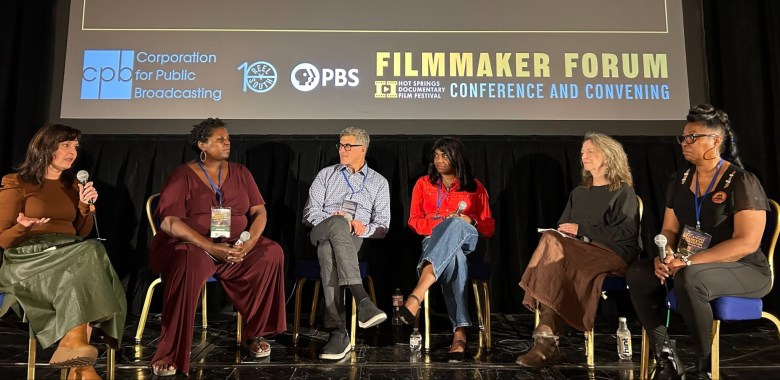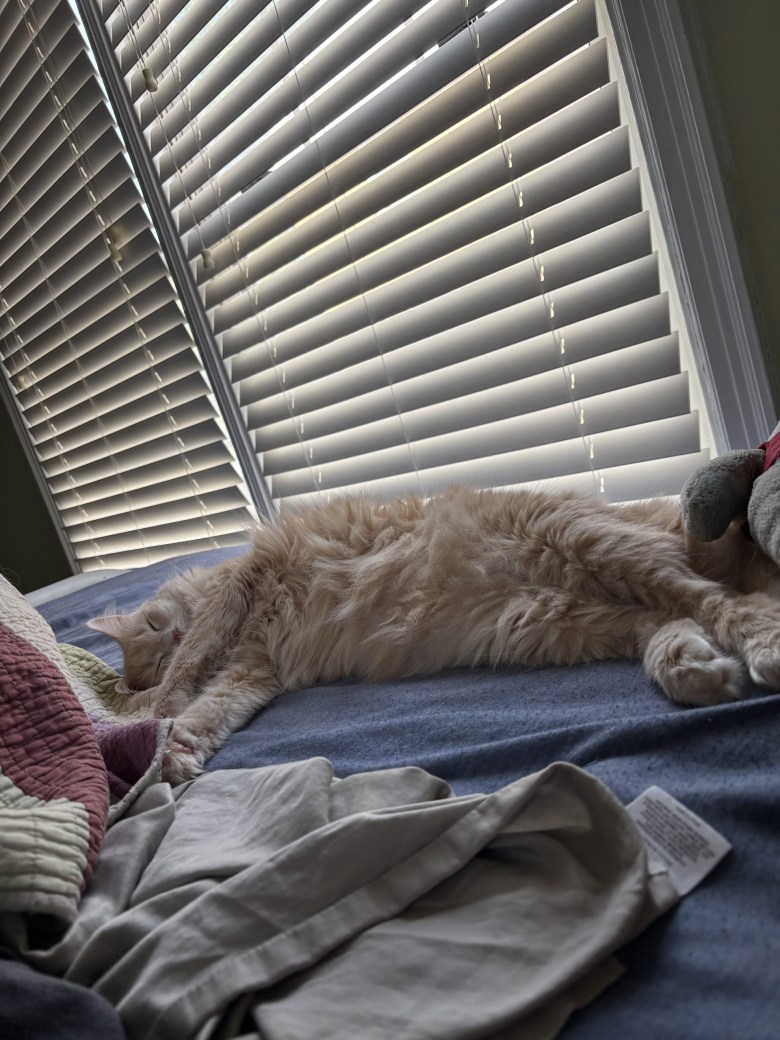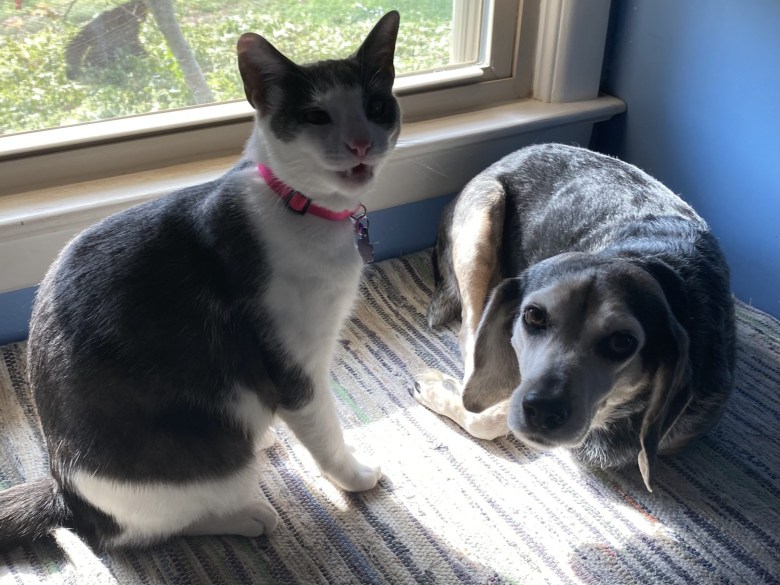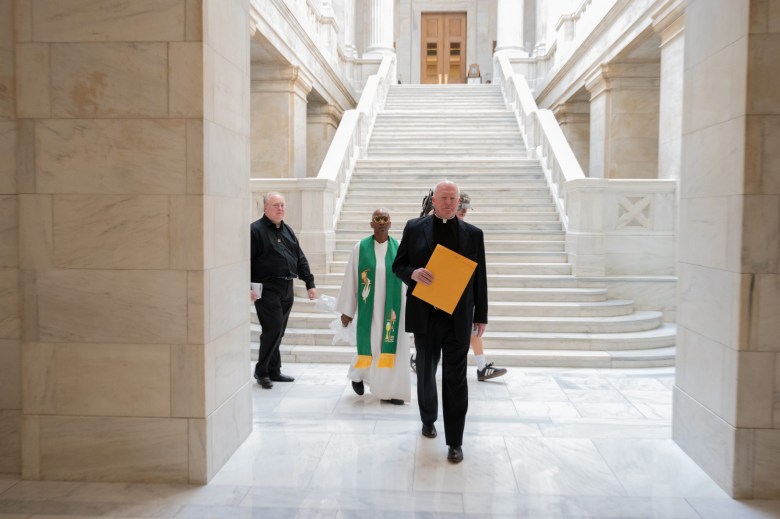Efforts to rescind $1.1 billion previously approved by Congress for public media could have a devastating effect on a decades-old Arkansas film festival, according to its executive director.
Now in its 34th year, the Hot Springs Documentary Film Festival is the longest-running documentary film festival in North America and one of two film festivals that could lose funding if federal lawmakers approve a rescissions request from President Donald Trump that would claw back federal funding for the Corporation for Public Broadcasting for fiscal years 2026 and 2027.
Ken Jacobson, executive director of the Hot Springs Documentary Film Institute, said the cuts would affect the nine-day festival as a whole, but its Filmmaker Forum, now in its third year, “would be devastated” because the program receives the majority of its funding from a $160,000 CPB grant.
Brad Burleson debuted his first short film at the festival last year and called the forum “a game changer” that has “completely shaped” his journey. The Hot Springs filmmaker and festival board member said the forum is an affordable way to connect local filmmakers to the broader documentary community without the expense of traveling to larger coastal cities.
Through the forum’s 15-minute one-on-one meetings with industry professionals, Burleson met CPB and National Endowment for the Arts representatives who shared information about resources and advice on how to market his film,
Tippi & Barb
.
The 12-minute documentary tells the story of how state Rep. Tippi McCullough, a retired teacher and Arkansas’ only openly gay state lawmaker, was fired from a Catholic school for marrying her wife.
In addition to its $160,000 CPB grant, the Hot Springs festival gets $20,000 from PBS, which also receives CPB funding, Jacobson said. The combined amount represents about 29% of the festival’s nearly $650,000 annual operating budget.
In fiscal year 2024, Arkansas received nearly $3.2 million in CPB funding, according to
CPB’s budget request
. Arkansas PBS received nearly $2.5 million, and roughly $545,300 was split between three National Public Radio stations.
Cuts to these institutions could also affect the festival because of partnerships between them, Jacobson said. Little Rock Public Radio helps promote the festival, while Arkansas PBS works with the nonprofit on an emerging filmmakers program.
“The cutting of CPB funding, it doesn’t just turn off PBS, it turns off a pipeline for storytellers,” Burleson said.
Rescissions Act
The CPB cuts are part of the larger
Recissions Act of 2025
that would revoke $9.4 billion in previously approved funding for public media and foreign aid programs. The U.S. House
approved the measure
by two votes in June, marking only the third time in decades that the House has voted to claw back funding that lawmakers had already agreed to spend.
The U.S. Senate must vote on the rescissions request by Friday for it to take effect.
Jacobson shared his concerns about the bill with 4th District Congressman Rep. Bruce Westerman, who represents Hot Springs. Two weeks after all four of Arkansas’ representatives voted for the measure, Westerman said in
a letter
to Jacobson that although Arkansas PBS receives about 11% of its funding from CPB, the loss of those funds shouldn’t threaten the state’s public broadcasting services because of its diversified funding model.
“There’s no easy or feel-good answer here. I believe there are other federal programs more appropriate for reductions than CPB,” Westerman wrote. “That said, our nation’s fiscal path is unsustainable, and serious steps must be taken to rein in spending. Please know, I will keep your thoughts in mind should any future legislation regarding the CPB come to the House Floor.”
Although Jacobson found Westerman’s reluctance encouraging, he said “we need our representatives to step up and act accordingly” unless they want to see negative impacts in Arkansas.
Like Arkansas PBS, the documentary festival has a diverse revenue stream that includes ticket sales, corporate sponsorships, individual donations and grants from other organizations like the National Endowment for the Arts, which Trump recommended eliminating in his
2026 Discretionary Budget Request
. The NEA has also
cancelled grants
this year to various groups.
The Hot Springs Film Festival received a termination letter for a $40,000 NEA grant awarded in late 2024. The nonprofit eventually received the full amount, but Jacobson said others weren’t so lucky.
The Trump administration’s threats to grant funding have been “upsetting” because organizations go through a long process of applications and vetting to earn these grants — they’re not just automatically given, he said.
“It seems like it should have been a done deal. So then to hear in January that the administration was planning to cancel the vast majority of those grants, it is kind of a slap in the face not just to organizations like ours, but to the process itself,” Jacobson said.
The elimination of federal funding can have a ripple effect because several grant-funded organizations work together.
Burleson, for example, honed his filmmaking skills by taking classes offered by Low Key Arts, which were funded by NEA and the Arkansas Arts Council. The nonprofit partnered with the film festival last year to offer a documentary workshop, which allowed Burleson to create his first film.
There’s a lot of momentum in Arkansas filmmaking that’s driven by access to resources like the Filmmaker’s Forum, and losing federal funds diminishes that growth, Burleson said.
“This isn’t just about art,” he said. “In so many people’s minds this is an extracurricular activity, [but] this is something that teaches people how to tell Southern stories and really promotes the Southern storytelling.”
Since attending the festival for the first time in 2010, Burleson said he’s “gone religiously,” often taking off work for the entire week to attend what he considers a unique event.
“The amount of culture and the types of films that are brought into Hot Springs, this doesn’t exist,” Burleson said. “This is such an anomaly to have such great talent, to have so many diverse films that range the spectrum brought into our little town in the South.”
Beyond making documentaries accessible to local audiences and filmmakers, Jacobson said the festival is a boon for the local economy because guests stay at hotels and patronize local businesses.
“All of that economic engine will be stalled if this much valued arts organization is forced to cut back,” he said.
Jacobson said he’s started thinking about how he might cope with potential cuts next year by shortening the nine-day festival, eliminating programs or reducing travel budgets for high-profile guests.
For now, staff is busy preparing for this year’s festival, which is scheduled for Oct. 10-18. More information is available at
www.hsdfi.org
.
Arkansas Advocate
is part of States Newsroom, a nonprofit news network supported by grants and a coalition of donors as a 501c(3) public charity. Arkansas Advocate maintains editorial independence. Contact Editor Sonny Albarado for questions:
.
Partner Content by Arkansas Advocate
It’s dragon-slaying time!
In a time when critical voices are increasingly silenced, the
Arkansas Times
stands as a beacon of truth, tirelessly defending the fundamental rights and freedoms within our community. With Arkansas at the epicenter of a sweeping culture war affecting our libraries, schools, and public discourse, our mission to deliver unflinching journalism has never been more vital. We’re here to “slay dragons” and hold power accountable, but we can’t do it alone. By contributing today, you ensure that independent journalism not only survives but thrives in Arkansas. Together, we can make a difference — join the fight.







